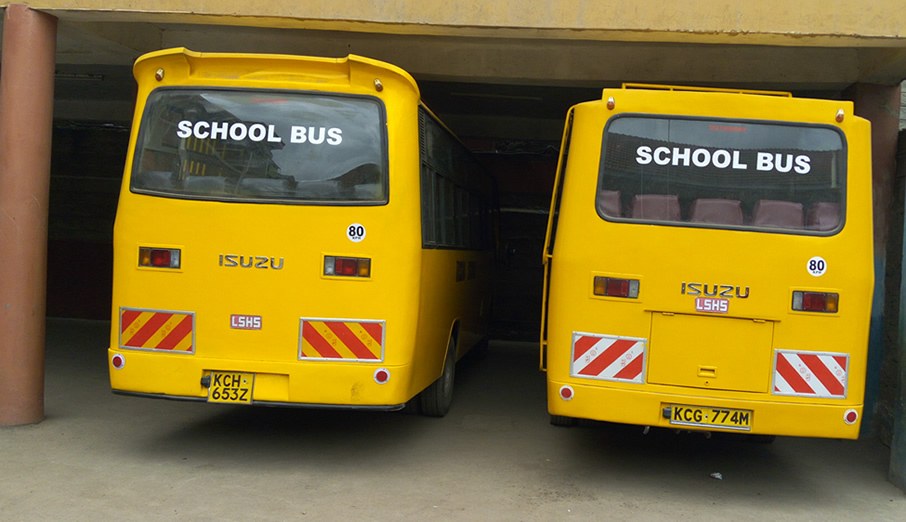In Kenya, ensuring the safety of schoolchildren during transportation is a top priority for parents, schools, and regulators. The National Transport and Safety Authority (NTSA) plays a pivotal role in regulating school transport providers to maintain high safety standards. Obtaining an NTSA School Transport Providers Licence is a critical step for individuals, companies, or institutions looking to operate school transport services legally and safely in 2025. This comprehensive guide explores the requirements, application process, and compliance obligations for securing and maintaining this licence, while addressing the broader context of school transport safety in Kenya.
Why the NTSA School Transport Providers Licence Matters
The NTSA School Transport Providers Licence is a legal requirement for any entity or individual providing transport services to schoolchildren in Kenya. This licence ensures that operators adhere to strict safety, operational, and regulatory standards, safeguarding students from preventable accidents and ensuring accountability. According to NTSA regulations, non-compliance can result in severe penalties, including fines, vehicle impoundment, or suspension of operations. For schools and parents, partnering with licensed providers guarantees peace of mind, knowing that transport services meet national safety benchmarks.
Key Benefits of the Licence
- Enhanced Safety: Licensed providers must comply with vehicle safety standards, driver qualifications, and operational protocols.
- Regulatory Compliance: Avoid legal penalties and ensure uninterrupted operations.
- Public Trust: Builds confidence among parents and schools, fostering a positive reputation.
- Accountability: Licensed providers are monitored by the NTSA, ensuring consistent adherence to regulations.
Legal Framework Governing School Transport in Kenya
The NTSA derives its authority from the National Transport and Safety Authority Act, 2012, and subsequent regulations, including the NTSA (Operation of Public Service Vehicles) Regulations. These laws outline the requirements for school transport providers, emphasizing vehicle safety, driver training, and operational licensing. The specific requirements for the School Transport Providers Licence are detailed in the regulations, with key provisions including:
- Submission of registration documents for companies, cooperatives, or individuals.
- Payment of prescribed fees as outlined in the First Schedule.
- Compliance with vehicle-specific licensing requirements.
These regulations are designed to address systemic issues in Kenya’s transport sector, such as corruption and incompetence, as highlighted by a 2024 whistleblower exposé on NTSA operations.
Detailed Requirements for the NTSA School Transport Providers Licence
To obtain an NTSA School Transport Providers Licence in 2025, applicants must meet specific criteria and submit required documentation. Below is a detailed breakdown of the requirements, based on NTSA regulations:
1. Registration Documentation
Applicants must provide proof of legal registration, ensuring that the entity or individual is recognized under Kenyan law. The required documents include:
- Certificate of Registration:
- For companies, a certificate of registration under the Companies Act, 2015.
- For cooperative societies, a certificate under the Cooperative Societies Act.
- For individuals, a National Identification Card.
- For educational institutions, a certificate of registration from the Ministry of Education.
- Purpose: Verifies the legal status of the applicant, ensuring traceability and accountability.
2. Personal Identification Number (PIN) Certificate
- A valid PIN certificate issued by the Kenya Revenue Authority (KRA) is mandatory.
- This ensures that the applicant is tax-compliant, aligning with Kenya’s fiscal regulations.
- Applicants must submit a copy of the PIN certificate during the application process.
3. Physical Address of Office
- Applicants must provide a verifiable physical address of their office or operational base.
- This allows the NTSA to conduct inspections and maintain oversight of the provider’s operations.
- A physical address enhances transparency and ensures that the provider can be contacted or audited as needed.
4. Payment of Prescribed Fees
- Applicants must pay the fees outlined in the First Schedule of the NTSA regulations.
- These fees cover the processing and issuance of the licence and vary based on the type of applicant (individual, company, or cooperative).
- As of 2025, specific fee details are available on the NTSA website or at regional NTSA offices, as fee structures may be updated periodically.
5. Vehicle-Specific Licensing Requirements
- Each vehicle used for school transport must have a valid School Vehicle Road Licence issued by the NTSA.
- This licence ensures that vehicles meet safety standards, including:
- Installation of speed governors.
- Yellow band markings and school transport signage.
- Regular vehicle inspections for roadworthiness.
- Seat belts and safety features compliant with NTSA guidelines.
6. Validity and Renewal
- The NTSA School Transport Providers Licence is valid for one year from the date of issue.
- Providers must renew the licence annually, submitting updated documentation and paying renewal fees.
- Failure to renew may result in penalties or suspension of operations.
Application Process for the NTSA School Transport Providers Licence
The application process for the NTSA School Transport Providers Licence is streamlined through the NTSA’s online portal and physical offices. Below is a step-by-step guide to applying in 2025:
Step 1: Gather Required Documents
- Compile all necessary documentation, including registration certificates, PIN certificate, and proof of physical address.
- Ensure that all documents are valid and certified where required.
Step 2: Register on the NTSA Portal
- Visit the NTSA’s official website (www.ntsa.go.ke) and create an account on the TIMs (Transport Integrated Management System) portal.
- Provide accurate details, including contact information and business particulars.
Step 3: Submit Application
- Upload scanned copies of all required documents to the TIMs portal.
- Complete the application form, specifying the number of vehicles and operational details.
- Pay the prescribed application fee via the portal’s integrated payment system (e.g., M-Pesa or bank transfer).
Step 4: Vehicle Inspection
- Schedule a vehicle inspection with the NTSA to verify compliance with safety standards.
- Ensure that all vehicles are equipped with required safety features, such as seat belts, fire extinguishers, and first-aid kits.
Step 5: Licence Issuance
- Upon successful verification, the NTSA will issue the School Transport Providers Licence, typically within 7–14 working days.
- The licence will be available for download on the TIMs portal or collection at an NTSA office.
Step 6: Annual Renewal
- Monitor the licence’s expiry date and initiate the renewal process at least 30 days before expiration.
- Submit updated documents and pay renewal fees to maintain compliance.
Additional Compliance Obligations for School Transport Providers
Beyond obtaining the licence, providers must adhere to ongoing compliance requirements to operate legally and safely. These include:
- Driver Qualifications: Drivers must hold a valid Public Service Vehicle (PSV) licence and undergo regular training on road safety and child protection.
- Vehicle Maintenance: Regular maintenance and inspections to ensure vehicles remain roadworthy.
- Insurance: Comprehensive insurance coverage for passengers and vehicles, as mandated by Kenyan law.
- Operational Protocols: Adherence to designated routes, schedules, and passenger limits to prevent overcrowding or unsafe practices.
Failure to comply with these obligations can lead to penalties, as seen in cases where vehicles were impounded for operating without proper licences.
Challenges Facing School Transport Providers in Kenya
Despite clear regulations, school transport providers in Kenya face several challenges in meeting NTSA requirements:
- High Compliance Costs: The cost of vehicle modifications (e.g., speed governors, seat belts) and licensing fees can be prohibitive for small-scale operators.
- Bureaucratic Delays: Delays in processing applications or inspections can disrupt operations, particularly for new providers.
- Corruption Allegations: Reports of corruption within the NTSA, such as those highlighted in a 2024 whistleblower exposé, raise concerns about transparency in the licensing process.
- Rural Accessibility: Rural providers may struggle to access NTSA offices or comply with urban-centric regulations, as noted in discussions about rural school bus routes.
To address these challenges, the NTSA has introduced measures like the TIMs portal to streamline applications and reduce bureaucratic hurdles. Providers are also encouraged to engage with NTSA regional offices for support.
The Role of Schools and Parents in Ensuring Compliance
Schools and parents play a critical role in ensuring that transport providers meet NTSA standards. Schools should:
- Verify that transport providers hold valid NTSA licences before signing contracts.
- Conduct regular checks on vehicle safety features and driver qualifications.
- Educate parents on the importance of using licensed providers.
Parents, on the other hand, can:
- Request proof of licensing from schools or transport providers.
- Report non-compliant operators to the NTSA via the toll-free line (0709 932 000) or the TIMs portal.
- Advocate for safety measures, such as those proposed by youth leaders for including transport safety in school curricula.
Future Trends in School Transport Regulation
As Kenya’s education and transport sectors evolve, the NTSA is likely to introduce stricter regulations to enhance school transport safety. Emerging trends include:
- Technology Integration: Use of GPS tracking and real-time monitoring to ensure route adherence and speed compliance.
- Driver Training Programs: Mandatory training on child safety and emergency response, potentially integrated into school curricula.
- Sustainability Initiatives: Encouraging eco-friendly vehicles, such as electric buses, to reduce operational costs and environmental impact.
- Public Awareness Campaigns: Increased efforts to educate schools, parents, and providers about NTSA regulations and safety standards.
These trends align with global best practices and reflect Kenya’s commitment to improving road safety for students.
The NTSA School Transport Providers Licence is a cornerstone of Kenya’s efforts to ensure safe, reliable, and compliant school transport services. By meeting the outlined requirements—registration, PIN certification, physical address, and vehicle licensing—providers can contribute to a safer transport ecosystem for students. While challenges like compliance costs and bureaucratic delays persist, the NTSA’s streamlined processes and ongoing reforms aim to address these issues.
For schools, parents, and providers, understanding and adhering to these regulations is not just a legal obligation but a moral imperative to protect Kenya’s children. By staying informed and proactive, stakeholders can ensure that school transport in 2025 and beyond meets the highest standards of safety and reliability.
For more information or to apply for the NTSA School Transport Providers Licence, visit www.ntsa.go.ke or contact your nearest NTSA office.





